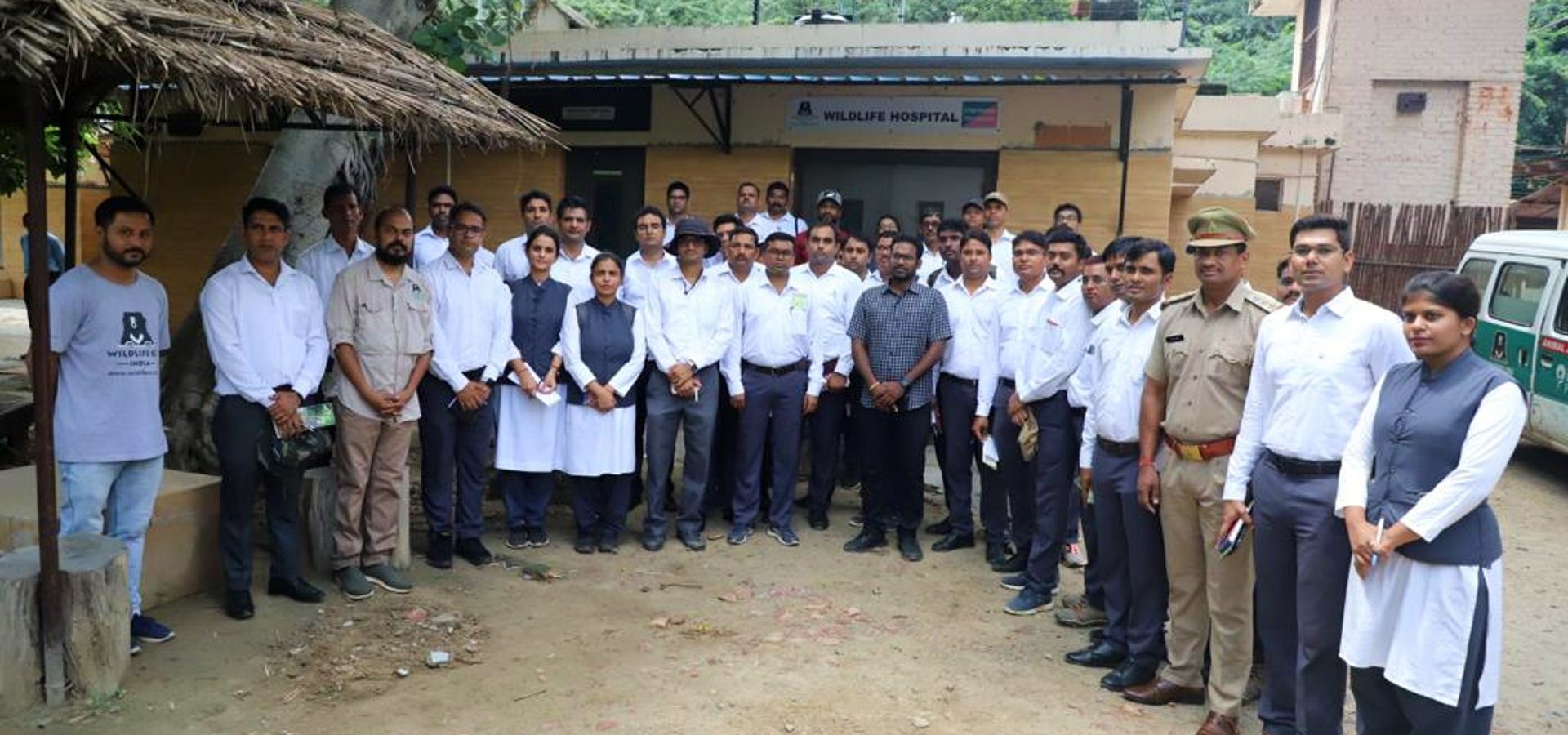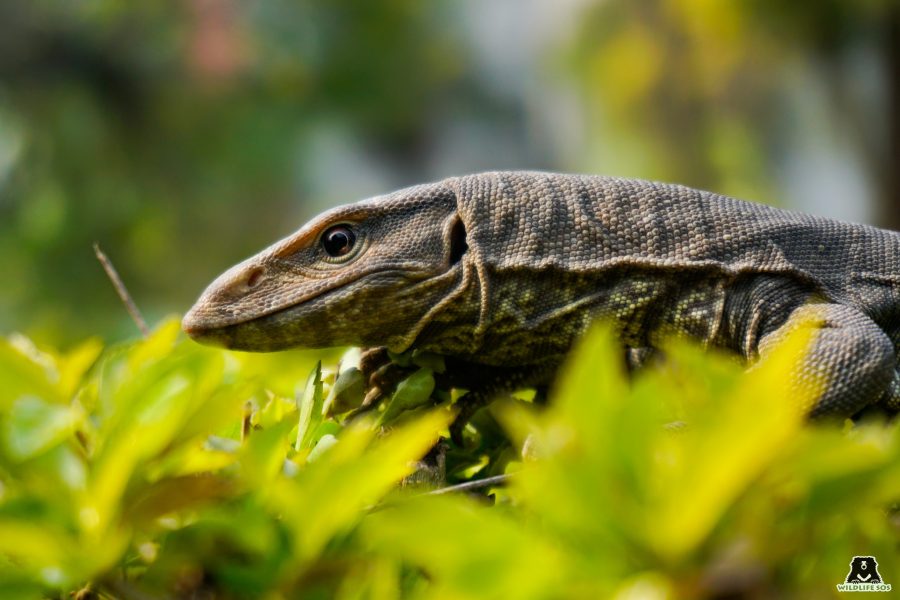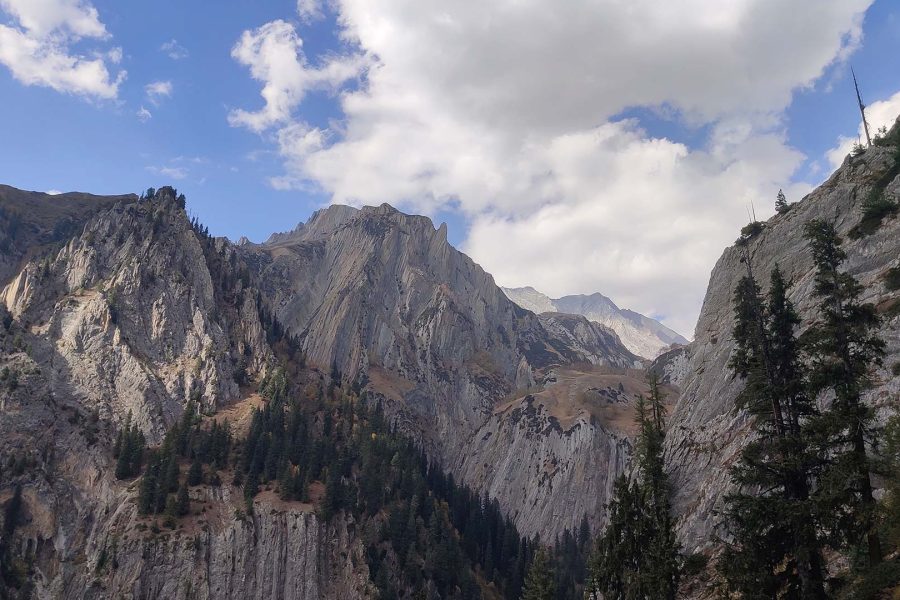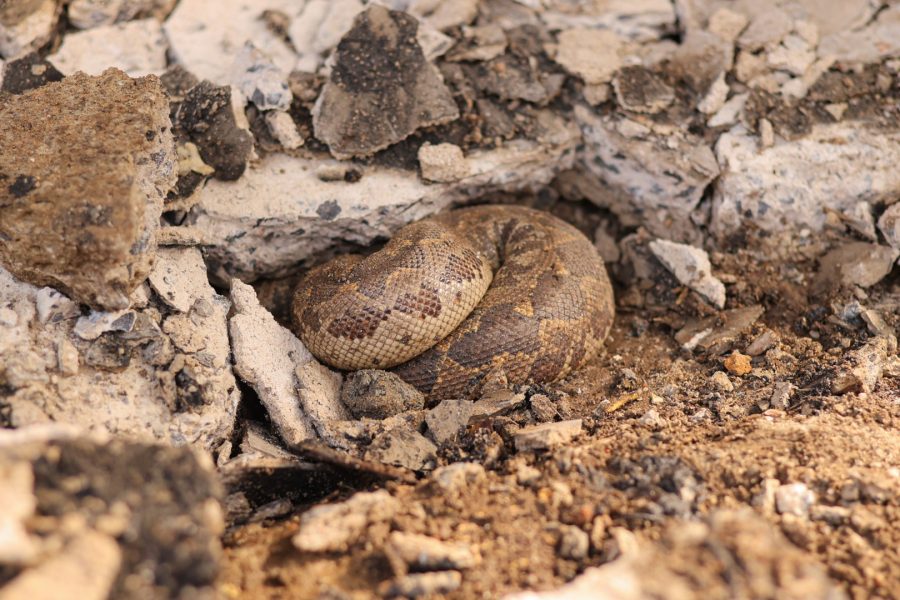Recently, a group of Assistant Forest Conservator (ACF) officer trainees from the Central Academy for State Forest Service, Coimbatore visited the Wildlife SOS Agra Bear Rescue Facility (ABRF). A total of 43 officer trainees came from six different states — Uttar Pradesh, Maharashtra, Jammu and Kashmir, Tamil Nadu, Mizoram and Chhattisgarh. All of them belong to the State Forest Service (SFS) batch of 2020 – 2022.
As a part of their field visit to ABRF, the officer trainees were given a tour of the centre by Mr. Baiju Raj M.V., Director Conservation Projects – Wildlife SOS. After a brief orientation session, the group was made familiar with the threats that Sloth bear populations face in the country. The intricate details of bear rescues from the wild and their rehabilitation at our centres were also shared with the officers . Mr. Baiju Raj described the ideal living conditions that one must set up for the Sloth bears rescued from the ‘dancing’ bear practice, which include the size of their enclosure, feeding area, provision of enrichment and nutritious diet.
During the facility tour, the group was introduced to the various aspects of management through the information boards set up at our centre. The team also met our beloved Sloth bears Leena, Elvis, Rose, Bintha and Aishwarya. By interacting with their caregivers, the officer trainees also gained insight into the care provided to the bears. Further, Dr. Ilayaraja, Deputy Director Veterinary Services – Wildlife SOS, engaged with them about our state-of-the-art medical facilities and the health management of Sloth bears.
Importance of Field Visits
Sharing knowledge and gaining awareness is the key to becoming more sensitive to our surroundings. Communication with local stakeholders, locals or government officials has proven effective in more than one way — from carrying out conservation and management to bringing a change in people’s perceptions. With sophisticated centres set up in several regions throughout the country, Wildlife SOS often conducts field visits for forest officials and veterinary officers.
Our team at the Manikdoh Leopard Rescue Centre conducted a training workshop this month for forest officials in the Manchar, Chakan and Shirur forest ranges of Maharashtra. Earlier this year, they also conducted a rescue equipment training session for 35 forest officials in collaboration with the Ahmednagar Forest Division. The officials were familiarised with the required rescue equipment and gear through practical demonstrations.
Field visits are an excellent way to form and improve capacity building for those who are directly involved in the field of conservation. Such workshops can contribute largely in improving specific wildlife management skills, technical expertise and humane management of animals in captive care.
Role of Wildlife SOS
Wildlife SOS has worked for over 25 years to contribute towards conservation, becoming one of India’s largest wildlife rescue organisations. Alongside providing care to the rescued and rehabilitated wild animals, Wildlife SOS is frequently involved in educating and creating awareness amongst the masses. Our team conducts numerous seminars, webinars and workshops that contribute immensely to eliciting conversations about conservation. Our trained and highly skilled staff have years of experience and truly believe that change and communication go hand in hand.
If you and your team wish to learn about our work and wildlife through field visits and workshops, contact us at visit@wildlifesos.org.





